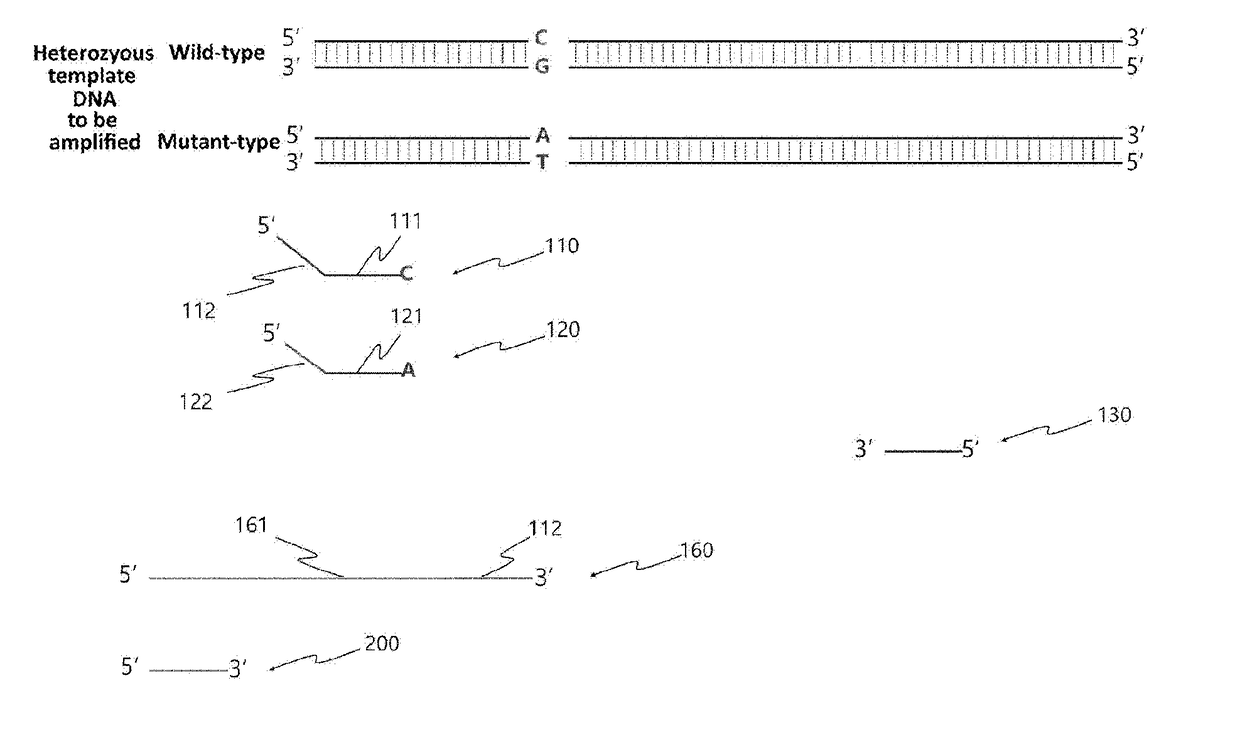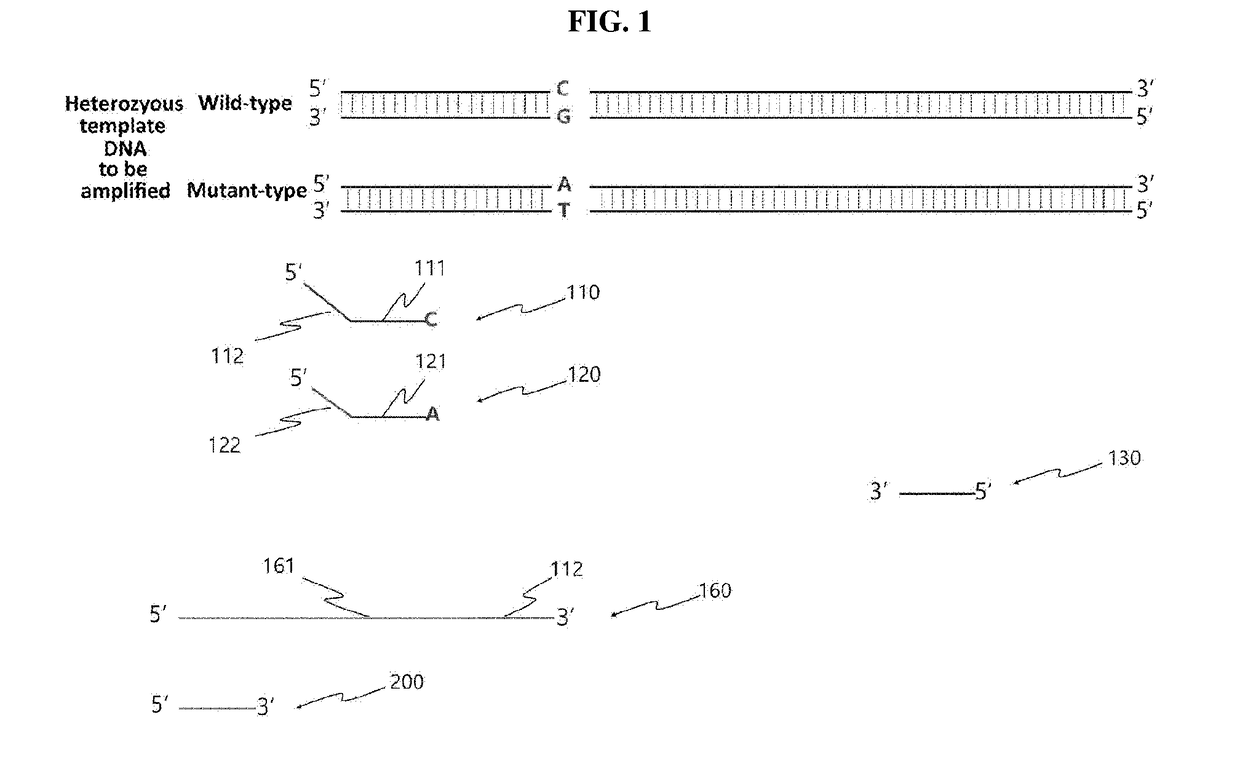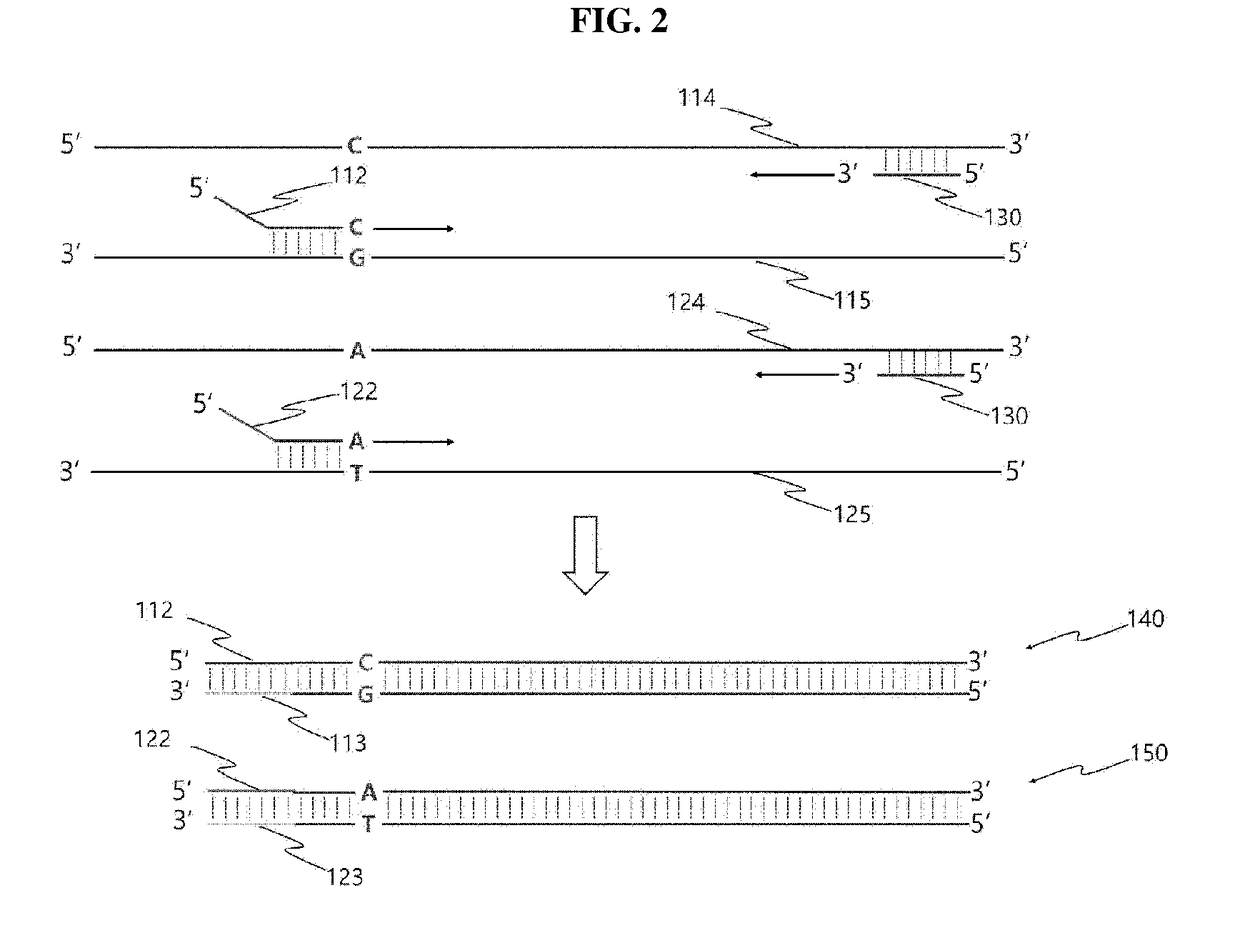Kit and method for detecting single nucleotide polymorphism
- Summary
- Abstract
- Description
- Claims
- Application Information
AI Technical Summary
Benefits of technology
Problems solved by technology
Method used
Image
Examples
example 1
ecific Amplification of Target Nucleic Acid Molecule
[0153]In the present invention, in order to examine whether the presence or absence and type of single nucleotide polymorphism (SNP) can be determined rapidly by the allele-specific bidirectional primer extension as described above, examination was first performed to determine whether allele-specific PCR would be performed using as a template the BCR-ABL gene known to have SNP.
[0154]Specifically, in order to detect SNP (C>T) corresponding to the 318th nucleotide of the template DNA (human c-abl oncogene) represented by SEQ ID NO: 1, a 115 bp amplification product was produced by allele-specific PCR using a C-specific primer represented by SEQ ID NO: 2 and a T-specific primer represented by SEQ ID NO: 3, which are allele-specific primers, and a reverse primer represented by SEQ ID NO: 4. In this case, the two forward primers all had a deliberate mismatch (C>A) introduced to the 3rd nucleotide from the 3′-end. This mismatch is known ...
example 2
ion of Extension Primer
[0156]The present inventor prepared an extension primer to be used in allele-specific bidirectional primer extension following allele-specific PCR. Specifically, amplification was performed using the pBR322 plasmid (Promega, USA) represented by SEQ ID NO: 5, which has a low sequence homology with human genomic DNA, as a template and using a forward primer represented by SEQ ID NO: 6 and a reverse primer represented by SEQ ID NO: 7, thereby producing a 117 bp amplification product. Here, the forward primer was composed of the homologous sequence present in the pBR322 plasma and a second tag complementary oligonucleotide (SEQ ID NO: 8), attached to the 5′-end of the homologous sequence and complementary to a second tag oligonucleotide to be described below.
example 3
ion of Tag-Containing Primer and ASBPE Reaction Using the Same
[0157]In the present invention, a tag oligonucleotide having a specific nucleic acid sequence, which has a low homology with any sequence in the human genome and thus shows no false-positive results, was designed in the 5′-end of the forward primer in AS-PCR, and allele-specific PCR was performed using the forward primer having the designed tag oligonucleotide. The tag oligonucleotide is also known as the ZIP code sequence in the technical field to which the present invention pertains. The ZIP code sequence is a nucleotide oligomer having a sequence not present in the nucleotide sequence of genomic DNA, and is a sequence designed so as not to hybridize non-specifically to genomic DNA. Any person skilled in the technical field to which the present invention pertains will easily understand that the primer may be modified using various code sequences known in the art, in addition to the ZIP code sequences used in the Example...
PUM
| Property | Measurement | Unit |
|---|---|---|
| Temperature | aaaaa | aaaaa |
| Temperature | aaaaa | aaaaa |
| Temperature | aaaaa | aaaaa |
Abstract
Description
Claims
Application Information
 Login to View More
Login to View More - R&D
- Intellectual Property
- Life Sciences
- Materials
- Tech Scout
- Unparalleled Data Quality
- Higher Quality Content
- 60% Fewer Hallucinations
Browse by: Latest US Patents, China's latest patents, Technical Efficacy Thesaurus, Application Domain, Technology Topic, Popular Technical Reports.
© 2025 PatSnap. All rights reserved.Legal|Privacy policy|Modern Slavery Act Transparency Statement|Sitemap|About US| Contact US: help@patsnap.com



